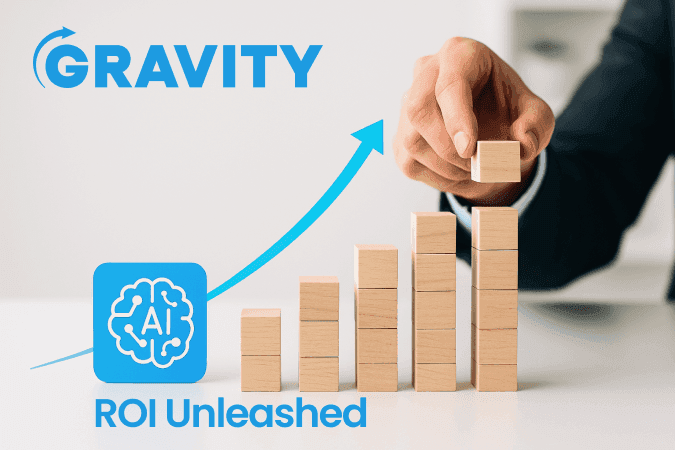Artificial Intelligence has become ubiquitous in business conversations, yet behind closed doors, executives grapple with a fundamental question: "Is AI actually generating returns for our business?"
Despite the widespread enthusiasm, many organizations struggle to demonstrate concrete return on investment from their AI initiatives. The uncertainty is understandable. Are AI-powered chatbots genuinely reducing operational costs, or simply replacing one expense with another? Do AI-driven marketing campaigns truly drive revenue growth, or merely add layers of complexity?
The reality is that AI is already delivering substantial ROI, but only for companies that implement it strategically. This article moves beyond the hype to examine how forward-thinking businesses are converting AI investments into measurable profit, backed by real-world results.
The promise: AI will transform every aspect of business operations.
The challenge: Without a coherent AI strategy, organizations risk investing millions in projects that fail to scale or deliver meaningful returns.
Research by McKinsey reveals that while only 11% of companies have successfully scaled AI across their enterprise, these organizations achieve ROI that's 2.5 times higher than their competitors. The differentiator? Strategic AI investments focused on areas with clear, measurable financial impact.
Retail: AI-Driven Personalization Drives Revenue Growth
A global e-commerce leader implemented AI-powered recommendation engines, resulting in a 30% increase in sales and adding $1.2 billion in revenue within one year. The system analyzes customer behavior in real time, delivering personalized product suggestions that significantly improve conversion rates.
Banking: AI-Powered Fraud Detection Reduces Losses
A major financial institution deployed AI for fraud detection, reducing fraud-related losses by 40% and saving $600 million annually. The AI algorithms continuously analyze transaction patterns around the clock, identifying anomalies instantly at a scale impossible for human analysts to achieve.
Marketing & Sales: AI Optimization Increases Customer Value
A Fortune 500 company leveraged AI to personalize email marketing campaigns, achieving a 22% increase in open rates and a 15% improvement in customer lifetime value. The AI predicts content preferences for individual customers and optimizes messaging in real time.
Step 1: Identify High-Impact Use Cases
Rather than pursuing every emerging AI trend, focus on applications that directly impact revenue, cost reduction, or operational efficiency. Examples include automated customer support, AI-driven pricing optimization, and predictive maintenance.
Step 2: Establish Financial Metrics
Define clear financial KPIs such as increased sales, reduced operational costs, or improved customer retention. If an AI initiative cannot demonstrate its value through concrete metrics, it warrants reconsideration.
Step 3: Scale for Compounding Returns
Organizations achieving the highest AI ROI move beyond experimentation to enterprise-wide implementation. Begin with pilot projects, refine based on results, then deploy across the organization for compounding returns.
At Gravity, we engineer AI strategies designed to generate measurable returns. Our approach includes:
- AI Readiness Assessments:
- Data Optimization:
- AI-Driven Automation:
- Enterprise Scaling:
Ready to transform AI into a competitive advantage? Let's develop a roadmap that delivers tangible business value.
AI skepticism has merit. Many companies invest heavily in AI projects that never scale beyond initial implementations. However, organizations taking a strategic approach are demonstrating that AI represents a significant opportunity for profitability when focused on ROI-driven use cases with disciplined execution.
AI isn't merely about future potential. It's about generating measurable value today.
Where is AI driving the most value in your organization? Connect with us to explore how strategic AI implementation can transform your business results.
